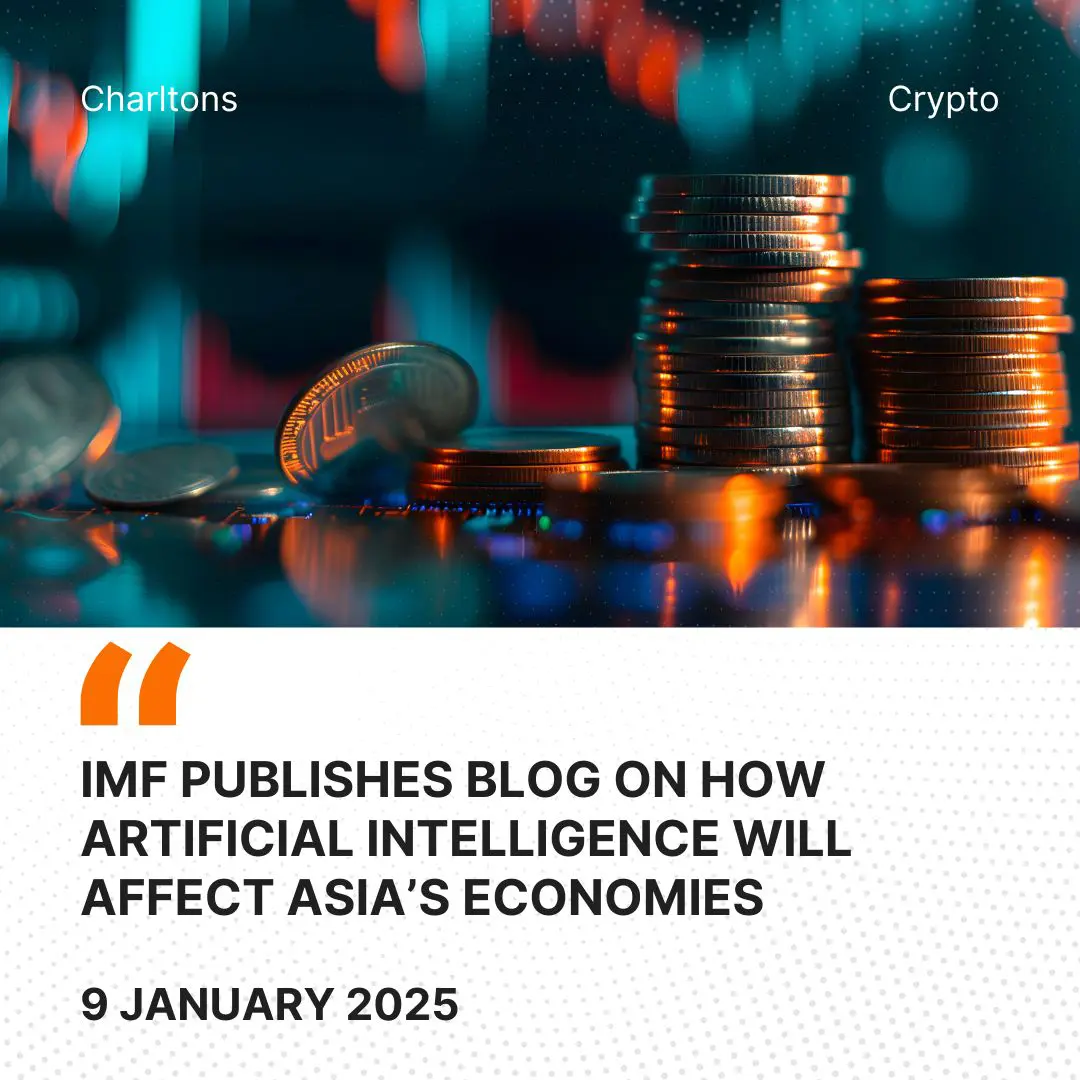
On 5 January 2025, International Mometary Fund (IMF) published a blog titled ‘How Artificial Intelligence Will Affect Asia’s Economies’, discussing the implications of artificial intelligence (AI) on labour markets across the Asia-Pacific region. The blog, based on findings from the October 2024 Asia-Pacific Regional Economic Outlook, delves into how AI can enhance productivity and innovation while also posing risks of deepening inequality both within and across nations.
The IMF’s blog published in January 2024 by IMF Managing Director Kristalina Georgieva and AI Preparedness Index served as a foundation for understanding the uneven readiness of countries to harness AI’s transformative power. The report revealed that advanced economies, such as Singapore, the United States, and Denmark, lead the way in AI adoption, scoring high on metrics such as digital infrastructure, human capital, and regulatory frameworks. These nations stand to benefit significantly from AI, with about 60% of their jobs exposed to the technology. While AI complements half of these roles by enhancing productivity, the other half faces risks of reduced demand, lower wages, or outright displacement.
In contrast, emerging markets and low-income countries, with AI exposure at 40% and 26% respectively, face fewer immediate disruptions but are less equipped to leverage AI’s benefits. Many lack the infrastructure and skilled workforce necessary to integrate AI, heightening the risk of falling further behind advanced economies. For example, while Singapore boasts 40% of jobs classified as highly complementary to AI, the figure in Laos is just 3%, underscoring the stark divide in readiness and opportunity.
The Asia-Pacific region, known for its economic dynamism and diversity, is poised to experience uneven impacts from AI adoption. Advanced economies such as Singapore and Japan are likely to witness greater shifts, with nearly half of all jobs in these countries potentially affected by AI. However, these same economies have a higher share of roles that can be complemented rather than replaced by AI, enabling productivity gains and economic efficiency. In Singapore, 40% of jobs are classified as highly complementary to AI, compared to just 3% in Laos, showing stark disparities in AI-readiness between advanced and emerging markets.
According to IMF Blog, disparity risks exacerbate inequalities between wealthier and less developed nations in the region. Advanced economies, with their better technological infrastructure and skilled workforces, are better positioned to capitalise on AI’s benefits. Emerging markets, on the other hand, face limited opportunities to integrate AI productively, further widening the development gap.
Within countries, AI also threatens to intensify existing inequalities. Workers in service, sales, and clerical roles, who are disproportionately at risk of job displacement, are often among the most vulnerable in the workforce. Women, who are overrepresented in these sectors, are particularly at risk, potentially worsening gender disparities. Conversely, AI is expected to benefit managerial, professional, and technical roles, which are already higher-paying occupations and are more likely to be held by men.
To address these challenges, IMF emphasised the need for proactive policymaking. They pointed to the importance of implementing robust social safety nets and reskilling programmes to support workers displaced by AI and enable their transition to new roles. Education and training systems must also be overhauled to equip the workforce with skills that can harness AI’s potential, particularly in emerging economies where fewer jobs currently stand to benefit from the technology. Beyond workforce readiness, they highlighted the urgency of establishing ethical AI regulations and data protection frameworks to mitigate potential disruptions and ensure responsible use of the technology.
The analysis draws on the economic diversity of Asia, a region that is home to some of the world’s fastest-growing economies and technologically advanced nations. Advanced economies, with their high-tech industries and skilled labour forces, are well-placed to reap the benefits of AI-driven efficiencies. However, less developed nations risk being left behind unless targeted interventions are introduced to level the playing field.
While AI offers immense potential for economic growth and innovation, it also poses critical challenges, and without deliberate action, the disruptive effects of AI could outpace its benefits, particularly in countries and sectors with limited readiness to adapt. Concerns about data privacy, ethical use, and social upheaval further underscore the need for robust governance.
(Source: https://www.imf.org/en/Blogs, https://www.imf.org/en/Blogs/Articles/2025/01/05/how-artificial-intelligence-will-affect-asias-economies)





